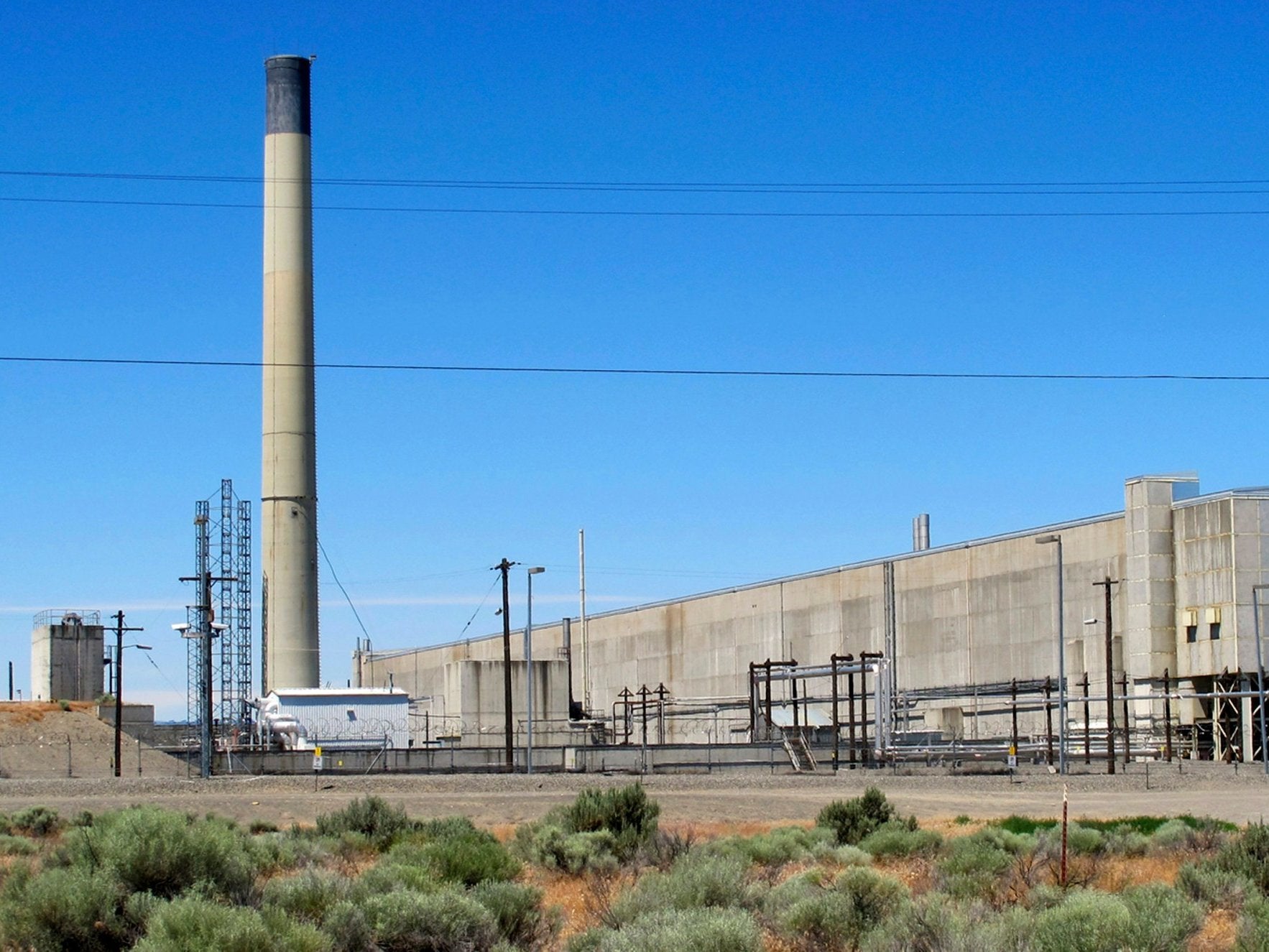Trump administration wants to reclassify leaking nuclear waste to avoid cleaning it up, say officials
'This is unacceptable, and we will not stand by while this administration plans to abandon its responsibility to clean up their mess'

Your support helps us to tell the story
From reproductive rights to climate change to Big Tech, The Independent is on the ground when the story is developing. Whether it's investigating the financials of Elon Musk's pro-Trump PAC or producing our latest documentary, 'The A Word', which shines a light on the American women fighting for reproductive rights, we know how important it is to parse out the facts from the messaging.
At such a critical moment in US history, we need reporters on the ground. Your donation allows us to keep sending journalists to speak to both sides of the story.
The Independent is trusted by Americans across the entire political spectrum. And unlike many other quality news outlets, we choose not to lock Americans out of our reporting and analysis with paywalls. We believe quality journalism should be available to everyone, paid for by those who can afford it.
Your support makes all the difference.Donald Trump's administration has been accused of trying to downplay the danger of nuclear waste so it can "abandon its responsibility to clean up their mess".
A federal government plan to reclassify this waste as less dangerous has been fiercely criticised by officials in Washington state, who said the move would allow it to walk away from its responsibility to clean up millions of gallons of toxic, radioactive material.
The state is home to the Hanford nuclear site which houses the nation's largest collection of nuclear waste, left over from atomic bomb production.
There are the 177 ageing underground tanks stored at the site containing the most dangerous material - some of which are leaking.
Amid fears much of the waste will be left in the ground, earlier this week, Washington state filed its objections to the US Department of Energy.
These were accompanied by a letter from the state's Governor Jay Inslee and Attorney General Bob Ferguson.
The US Department of Energy is seeking to reclassify a large percentage of the waste as lower-level waste. That would allow treatment and disposal options that would not guarantee long-term protections.
At present the government is obliged to keep the waste safely in a “deep geological repository”, but if it was reclassified there would be no such obligation. Critics are concerned this could mean that the was allowed to reside in areas in which it posed a threat.
"This dangerous idea will only serve to silence the voices of tribal leaders, Hanford workers, public safety officials, and surrounding communities in these important conversations," said Mr Inslee, a Democrat who is considering a presidential run in 2020. "This is unacceptable, and we will not stand by while this administration plans to abandon its responsibility to clean up their mess."
Hanford was established by the Manhattan Project in World War II to make plutonium, a key ingredient in the atomic bomb dropped on Nagasaki, Japan.
The site, near Richland, Washington, went on to produce most of the plutonium for the nation's nuclear arsenal.
Hanford tanks hold 60 percent of the nation's most dangerous radioactive waste left over from this nuclear weapons production.
Critics say that reclassifying some of the high-level radioactive waste to low-level could save the government billions of dollars and decades of work, but would do so by simply leaving dangerous material in the ground.
Cleanup efforts at Hanford have been underway since the late 1980s and cost about $2bn a year.
Currently, all of that waste is classified as high-level. Plans for its treatment and disposal have been developed to isolate it from the environment until it is no longer dangerous.
The energy department wants to reclassify some waste if it meets certain highly technical conditions, and says such measures would save $40 billion in clean-up costs.
The proposed measure would also cover other waste disposal facilities in places like South Carolina and Idaho, and could be implemented without the approval of Congress.
Additional reporting by AP.
Join our commenting forum
Join thought-provoking conversations, follow other Independent readers and see their replies
Comments